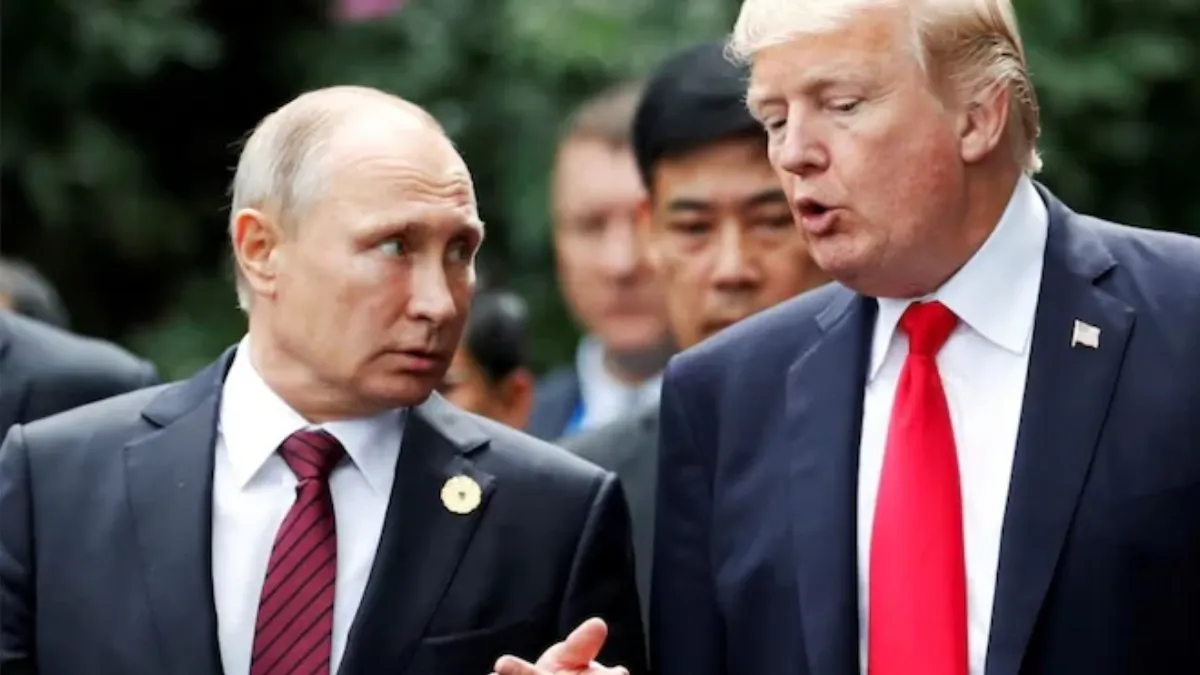Washington: U.S. President Donald Trump announced Tuesday that he has put on ice a proposed summit with Russian President Vladimir Putin, expressing reluctance to engage in discussions that could prove unproductive. The move marks another chapter in Trump’s uneven push to broker an end to the protracted conflict in Ukraine.
The Budapest, Hungary, encounter—revealed by Trump just days ago—has been deferred after a Monday telephone discussion between U.S. Secretary of State Marco Rubio and Russian Foreign Minister Sergey Lavrov. Speaking to journalists at the White House, Trump explained his rationale plainly: “I don’t want to have a wasted meeting. I don’t want to have a waste of time—so we’ll see what happens.”
This development is poised to ease concerns among European allies, who have criticized Putin for using diplomatic overtures as a delay tactic while Russian forces press advantages on the ground. Leaders such as the British prime minister, French president, and German chancellor have firmly rejected any pressure on Ukraine to relinquish territories seized by Moscow in exchange for a truce—a proposal Trump floated in recent statements.
In parallel, these nations intend to proceed with leveraging billions in seized Russian assets to finance Ukraine’s defense, even amid debates over the measure’s legal and strategic ramifications.
The two leaders’ most recent face-to-face occurred in August in Anchorage, Alaska, yielding no breakthroughs in Trump’s bid to halt a war now entering its fourth year.
Moscow appears equally unhurried. Kremlin spokesman Dmitry Peskov remarked Tuesday that any future summit demands “preparation… serious preparation.” Trump indicated that a final call on timing could come within days.
Amid these maneuvers, Ukrainian President Volodymyr Zelensky is intensifying efforts to bolster his country’s leverage, advocating for U.S.-supplied long-range Tomahawk missiles—though Trump remains noncommittal. “We need to end this war, and only pressure will lead to peace,” Zelensky wrote on Telegram Tuesday, observing that Putin’s outreach to Trump last week coincided with missile talks but waned as urgency subsided. “As soon as the pressure eased a little, the Russians began to try to drop diplomacy, postpone the dialogue.”
Trump’s schedule includes a Wednesday session with NATO Secretary General Mark Rutte, per a White House insider speaking anonymously due to briefing restrictions. Details on the agenda were not disclosed. The alliance continues orchestrating arms shipments to Kyiv, largely funded by Canada and European partners. Meanwhile, a gathering of the 35-nation Coalition of the Willing, focused on Ukraine support, convenes Friday in London.
Trump’s approach to the conflict has evolved markedly this year. Early on, he emphasized compelling Ukrainian concessions; later, frustration mounted over Putin’s steadfastness, despite Trump’s belief that their rapport could expedite resolution. In a reversal last month, he posited Ukraine might reclaim all lost ground. Yet following a recent Putin call and a Friday Zelensky huddle, Trump urged both sides to “stop where they are” in the three-plus-year strife. Sunday saw him advocate dividing Ukraine’s eastern Donbas industrial zone, mostly favoring Russia. Monday, he voiced skepticism about Ukraine’s outright victory, despite deeming it feasible.
ALSO READ : Trump and Putin Set for Budapest Summit to Broker End to Ukraine Conflict
Kyiv and its European backers are working diligently to align Trump with their priorities. A joint declaration from Ukrainian, U.K., Finnish, French, German, Italian, Norwegian, Polish, Danish leaders, and EU representatives affirmed: “We strongly support President Trump’s position that the fighting should stop immediately, and that the current line of contact should be the starting point of negotiations.” It added, “We can all see that Putin continues to choose violence and destruction.”
Russia, however, shows no interest in a truce. Lavrov told reporters in Moscow Tuesday—per state media—that it contradicts the Alaska accord between the presidents. Trump entered that summit aiming to pause hostilities but met Putin’s insistence on a full resolution.
With roughly one-fifth of Ukraine under occupation, Kyiv deems territorial partition for peace intolerable. Freezing lines could invite future incursions, as a foothold for Moscow, warn Ukrainian and European authorities.
The leaders’ communiqué arrived at the outset of what Zelensky termed a diplomatically charged week. Additional economic penalties on Russia loom at Thursday’s EU summit in Brussels. “We must ramp up the pressure on Russia’s economy and its defense industry, until Putin is ready to make peace,” the statement urged.
